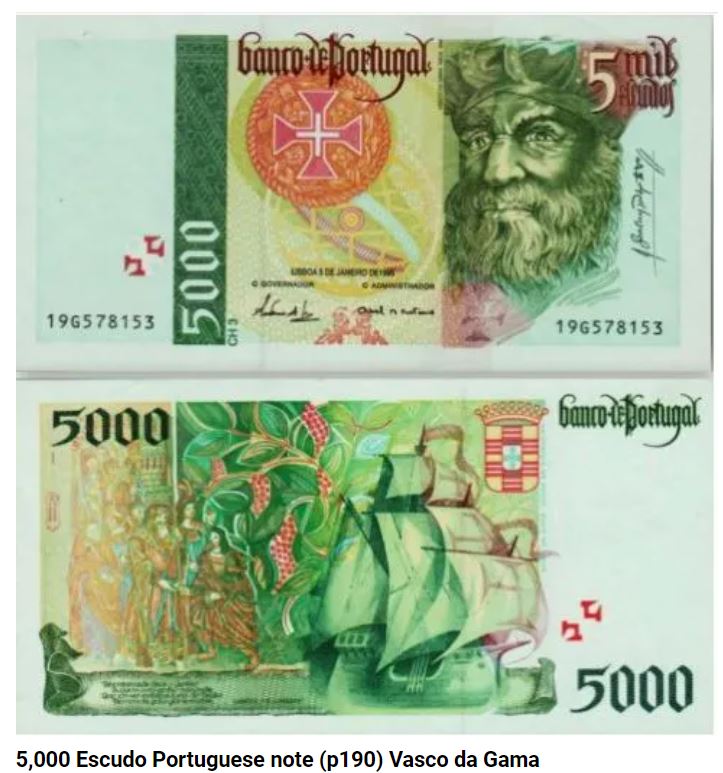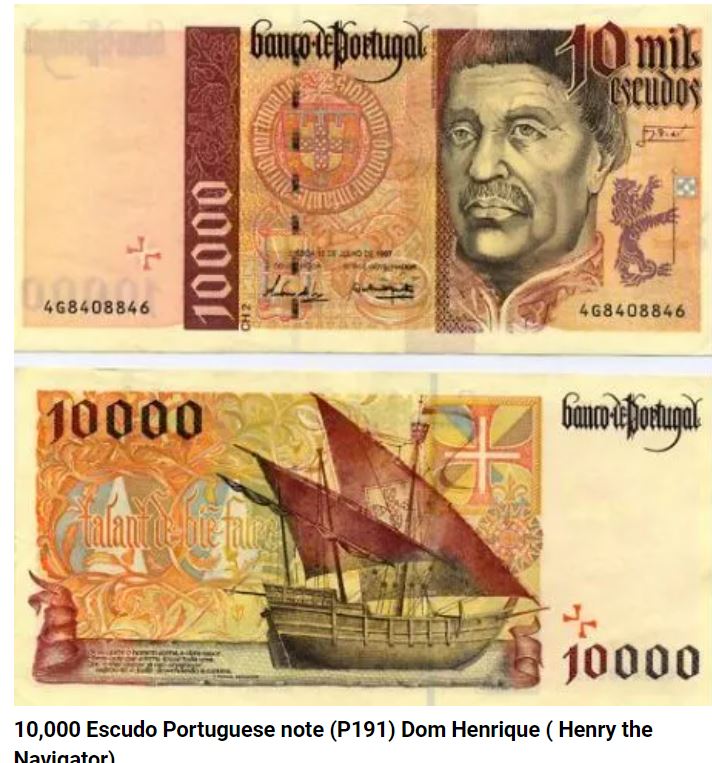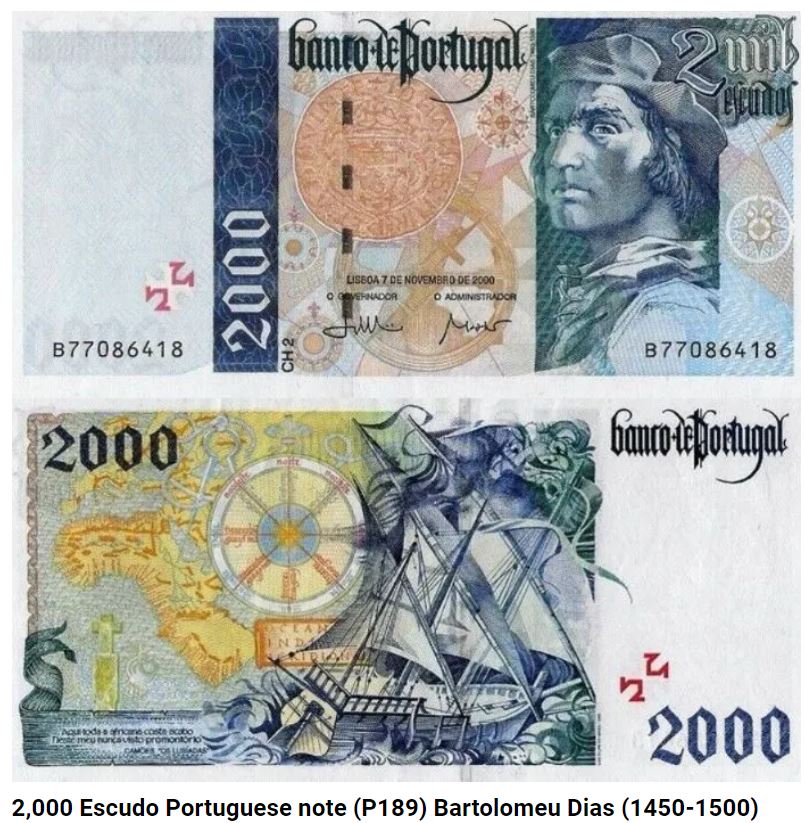Portugal – “Age of Explorers”
From- Roberts World of Money
This last series of banknotes featured the Age of Discovery, with historical figures highlighted on each note for their great accomplishments.
These escudos are truly beautiful, and what an amazing look into the history of Portugal. A sense of Portuguese pride and patriotism as they celebrated these great explorers who brought back prosperity, education, and goods to the citizens of Portugal. Such a beautiful embodiment to show the importance of these men.
 Portuguese 500 Escudo Note (p187b) João de Barros
Portuguese 500 Escudo Note (p187b) João de Barros
The 500 escudos note depicts João de Barros, one of the first great Portuguese historians. Barros is most famous for his work “Decadas da Asia”, a history of the Portuguese in India, Asia, and southeast Africa.
 1,000 Escudo Portuguese note (P188) Pedro Alvares Cabral
1,000 Escudo Portuguese note (P188) Pedro Alvares Cabral
The next note is the 1,000 escudos banknote depicting Pedro Alvares Cabral. Pedro Alvares Cabral was a Portuguese nobleman, however, he was also a military commander, navigator, and explorer. With a fleet of 13 ships, he sailed far into the Atlantic Ocean and is regarded for his discovery of Brazil. *Fun Fact: Cabral is regarded as the first captain who touched four continents, Europe, Africa, America, and Asia (well he has me beat, for now!) The back of this note shows his sailing ship, but also you can see the shapes of animals located in Brazil.
Bartolomeu Dias, in full Bartolomeu Dias de Novais, Bartolomeu also spelled Bartholomew, Dias also spelled Diaz, (born c. 1450—died May 29, 1500, at sea, near Cape of Good Hope), Portuguese navigator and explorer who led the first European expedition to round the Cape of Good Hope (1488), opening the sea route to Asia via the Atlantic and Indian oceans. He is usually considered to be the greatest of the Portuguese pioneers who explored the Atlantic during the 15th century.
Source: https://www.britannica.com/biography/Bartolomeu-Dias

The olive-green colored bill of 5000 escudos features Vasco da Gama, Portuguese explorer. Text on the paper banknote reads ‘Banco de Portugal’. On the back of the 5000 PTE note is an old sailing ship.
Da Gama was the third son of Estêvão da Gama, a minor provincial nobleman who was commander of the fortress of Sines on the coast of Alentejo province in southwestern Portugal. Little is known of his early life. In 1492 King John II of Portugal sent him to the port of Setúbal, south of Lisbon, and to the Algarve, Portugal’s southernmost province, to seize French ships in retaliation for French peacetime depredations against Portuguese shipping—a task that da Gama rapidly and effectively performed. Source: https://www.britannica.com/biography/Vasco-da-Gama

Dom Henrique was the third son of King John I and Philippa of Lancaster, the daughter of John of Gaunt of England. Henry and his older brothers, the princes Duarte (Edward) and Pedro, were educated under the supervision of their parents. Henry emerged with pronounced tastes for chivalric romance and astrological literature, as well as with ambitions to take part in military campaigns and, if possible, win a kingdom for himself. Source: https://www.britannica.com/biography/Henry-the-Navigator
